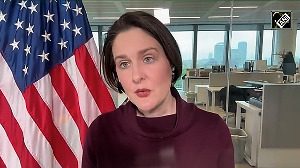While the basic premise and spirit of the Code will remain the same, the commas and the full-stops in the draft report being prepared by a high-level committee will make interpretation of the law simpler

As the government gears up for major changes in the Insolvency and Bankruptcy Code (IBC), those close to drafting these revisions believe the focus is now on getting the language right for ‘’greater clarity’’ in the rulebook.
While the basic premise and spirit of the Code will remain the same, the commas and the full-stops in the draft report being prepared by a high-level committee will make interpretation of the law simpler, a source told Business Standard.
It could take up to 10 days for this panel reviewing the IBC to finalise its recommendations, he said, adding that the ‘’attempt is always to simplify things’’.
The panel report will then be taken up by the legislative department of the government for further changes.
The government is aiming for the report to be tabled in the current session of Parliament.
Among the changes in the Code likely to be proposed by the committee, it is the tweaking of the layers of prohibited and exempted parties (from presenting resolution plans) that will matter the most.
There would be no dilution in the much talked about Section 29A of the Code, which was included in November 2017, according to officials in the know.
Even in the inclusion of this section, many layers of prohibition were a challenge, pointed out insolvency lawyers.
Those involved in drafting the section are also of the opinion that there are many open-ends in it, leaving room for interpretation, especially linked to promoters’ right to bid.
The layers of prohibitions barring people from presenting resolution plans relate to individuals, persons connected to them and related parties.
The interpretation of what constitutes ‘’related parties’’ has not been clear in Section 29A, according to lawyers and investors.
However, the section classifies an ineligible person as one with a non-performing asset for more than one year from the time the National Company Law Tribunal (NCLT) admits the case.
Also, those who are prohibited by the Securities & Exchange Board of India (Sebi) from trading or accessing the securities markets cannot place a bid for a firm undergoing resolution.
The section, as it is, does not differentiate between large companies and medium and small enterprises (MSMEs).
But, the committee is considering separate treatment for MSMEs, it is learnt. Lawyers said that how Section 29A would be reworded in the amendments proposed will suggest the extent to which MSMEs could benefit. At present, the language of 29A suggests that those conditions apply to all companies undergoing resolution.
Apart from reworking 29A, the committee will give its views to the Ministry of Corporate Affairs on how homebuyers should be treated while bringing down the threshold for approval of a plan to two-thirds of the creditors in the committee instead of 75 per cent.
Insolvency professionals said this would help smooth passage of many resolution plans.
In case, the current session of Parliament cannot take up the IBC for further amendment, the government may take the Ordinance route for the same.
Photograph: Joshua Lott/Reuters







 © 2025
© 2025